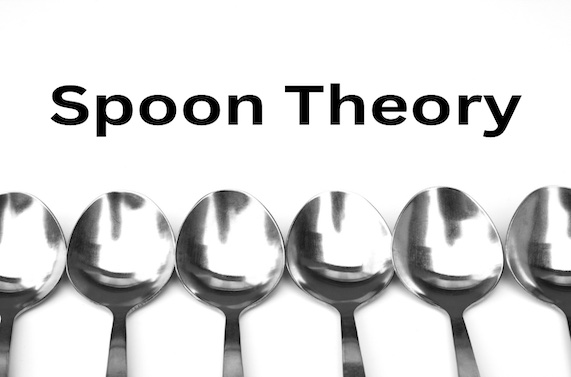
Written by Jennifer Cox LCPC
Spoon theory is a metaphor that has been widely used to explain the daily struggles of those living with chronic illnesses or disabilities. But can we apply this concept to mental health?
Spoon theory uses spoons to represent the amount of energy that those with chronic illnesses have to spend each day. When you run out of spoons, you run out of energy. This analogy can easily be applied to mental health as well.
Those living with mental health conditions also have a limited amount of ‘spoons’ to use each day. Tasks that may seem simple to others, like getting out of bed, showering, or socializing, can be incredibly draining for those struggling with their mental health.
On a good day, someone with mental health issues may have a full set of spoons to use. They can tackle their daily responsibilities, engage in self-care activities, and maybe even have some left over for fun or relaxation. But on a bad day, their spoon supply may be significantly reduced. They may struggle to get out of bed, let alone take care of themselves or interact with others.
It’s important for those without mental health issues to understand and respect the limitations of those who do. Just because someone may appear fine on the outside, doesn’t mean they aren’t struggling on the inside.
So, how can we support those with mental health issues and help them conserve spoons? Here are a few suggestions:
– Listen without judgment: Sometimes all someone needs is a listening ear. Be there for them, validate their feelings, and offer support.
– Offer practical help: Whether it’s running errands, cooking a meal, or helping with household chores, offering practical assistance can lighten the load for someone struggling with their mental health.
– Respect their boundaries: Understand that someone may need to set boundaries to protect their mental health. Respect their need for space or time alone.
– Educate yourself: Take the time to educate yourself about mental health conditions and how they can impact someone’s daily life. This can help you better understand and support your loved ones.
By applying the concept of spoon theory to mental health, we can better understand the daily struggles of those living with mental health conditions. Let’s show compassion, empathy, and support to those who may be struggling to conserve their spoons. Together, we can create a more understanding and inclusive society for all.
It is okay to prioritize your well-being and seek help when needed.
By working together, we can create a world where mental health is valued, and
all individuals have access to the care and resources they deserve.
Reach out today at info@echcounseling.com or 815-363-0864

